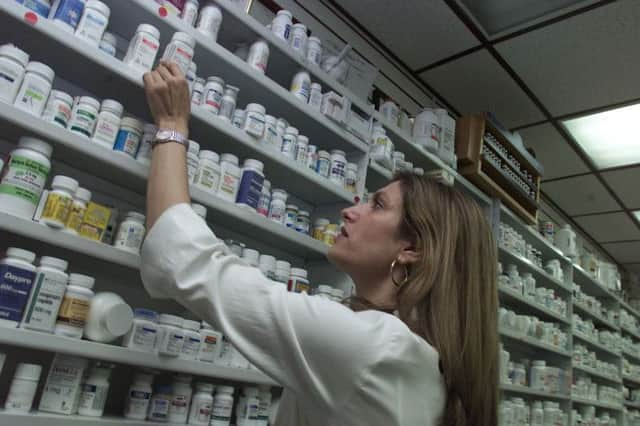Dire warning over attack of the superbugs


Mark Woolhouse, professor of infectious diseases at Edinburgh University, along with Wellcome Trust director Professor Jeremy Farrar, called for an international body – similar to the one set up to address climate change – to be established to tackle the rise of drug-resistant superbugs.
The scientists urged governments around the world to form an “Intergovernmental Panel on Antimicrobial Resistance”.
Advertisement
Hide AdAdvertisement
Hide AdIt follows increased warnings of a future in which antibiotics are no longer available to fight infections because bugs have become resistant to them.
Last year, England’s chief medical officer Dame Sally Davies warned of the “ticking time bomb” posed by growing resistance to antibiotics, saying it should be ranked alongside terrorism on a list of threats to the nation.
Writing in the journal Nature, Prof Woolhouse and Prof Farrar said a global body to tackle antibiotic resistance would work independently to co-ordinate efforts to understand and combat what was a significant global-scale threat to human society – in similar fashion to the Intergovernmental Panel on Climate Change (IPCC),
“Antimicrobial resistance is a global problem that requires global solutions. So far, the international response has been feeble,” they said.
Without concerted action from the international community, the world faces a grim future in which currently treatable simple infections become potentially fatal diseases, they warned, adding that if the current stock of antibiotics ceases to work, even a slight graze or scratch could trigger a serious or even deadly infection.
The experts said resistant organisms such as MRSA had spread around the world and were already starting to neutralise the arsenal of antimicrobial treatments people take for granted. “Drugs that were once lifesavers are now worthless,” they wrote.
“Chloramphenicol, once a physician’s first choice against typhoid, is no longer effective in many parts of the world. Strains of extensively drug-resistant tuberculosis (TB), methicillin-resistant Staphylococcus aureus (MRSA), multidrug-resistant Escherichia coli and Klebsiella pneumoniae are serious threats to public health.
“Plasmodium falciparum (the parasite that causes the most dangerous form of malaria) is developing resistance to all known classes of antimalarial drug, threatening the remarkable progress that has been made against the disease.
Advertisement
Hide AdAdvertisement
Hide Ad“HIV is increasingly resistant to first-line antiviral drugs. Every class of antibiotic is increasingly compromised by resistance, as are many antivirals, antiparasitic and antifungal drugs.”
The professors warned: “It could get worse: routine medical care, surgery, cancer treatment, organ transplants and industrialised agriculture would be impossible in their present form without antimicrobials. And the treatment of many infectious human and livestock diseases now relies on just one or two drugs.”
A new global body would oversee surveillance programmes and set strict evidence-based targets to stem the loss of drug potency while accelerating the development of new therapies, the scientists said.